Lesson 15
Draw Groups of Things
Warm-up: How Many Do You See: Many Ways to Show 5 (10 minutes)
Narrative
The purpose of this warm-up is for students to subitize or use grouping strategies to describe the images they see. Students look for and make use of structure when they notice and use the arrangement of one image to help them with the next (MP7).
Launch
- Groups of 2
- “How many do you see? How do you see them?”
- Flash the image.
- 30 seconds: quiet think time
Activity
- Display the image.
- “Discuss your thinking with your partner.”
- 1 minute: partner discussion
- Record responses.
- Repeat for each image.
Student Facing
How many do you see?
How do you see them?



Student Response
For access, consult one of our IM Certified Partners.
Activity Synthesis
- Display or write and say “5”.
- “Each group has 5 dots. Even though they are arranged differently, they are all 5.”
- “We have been showing numbers in many different ways. What ways to show 5 did you see in this warm-up? What are some other ways that you can show 5?” (We saw 5 dots. We saw 5 on a 5-frame. We could hold up 5 fingers. We could use 5 counters or objects.)
Activity 1: Number Posters with Drawings (15 minutes)
Narrative
The purpose of this activity is for students to draw images to match a number. Students work in small groups to draw many different groups with the number on their poster. After students create their posters, they participate in a gallery walk. Consider establishing a small sound or motion to signal to students when it is time to move from one poster to the next.
This activity uses MLR7 Compare and Connect. Advances: Representing, Conversing.
Required Materials
Materials to Gather
Required Preparation
- Each group of 4 students need a piece of chart paper with a number (1-10) written at the top.
Launch
- Groups of 4
- Give each group of students a piece of chart paper with a number 1-10 written on top. Give students access to crayons, colored pencils, or markers.
- “You are going to make a poster with your group. Draw as many groups as you can to show the number on your poster.”
Activity
- 5 minutes: small-group work time
- “Walk around and look at the posters that other groups made. What do you notice? How are the other posters the same as your poster? How are they different?”
- 5 minutes: gallery walk
Student Response
For access, consult one of our IM Certified Partners.
Activity Synthesis
- Display a student drawing of 6 things or draw 6 apples in an array:
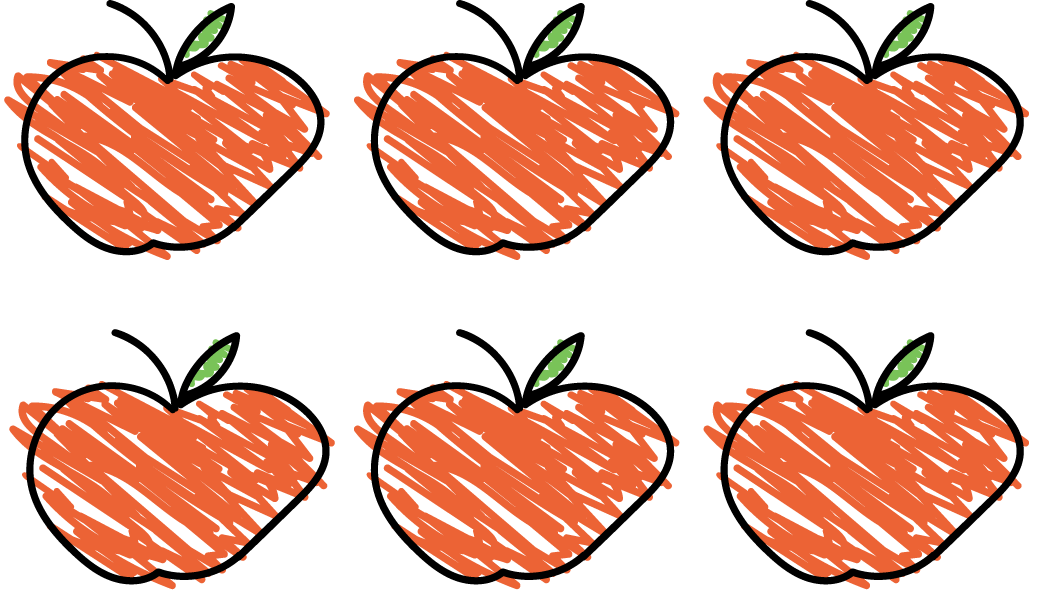
- “Elena drew these apples. Which number poster did she draw these apples for? How do you know?”
- Display a student drawing of 6 things or draw 6 apples in a line of 5 and 1:
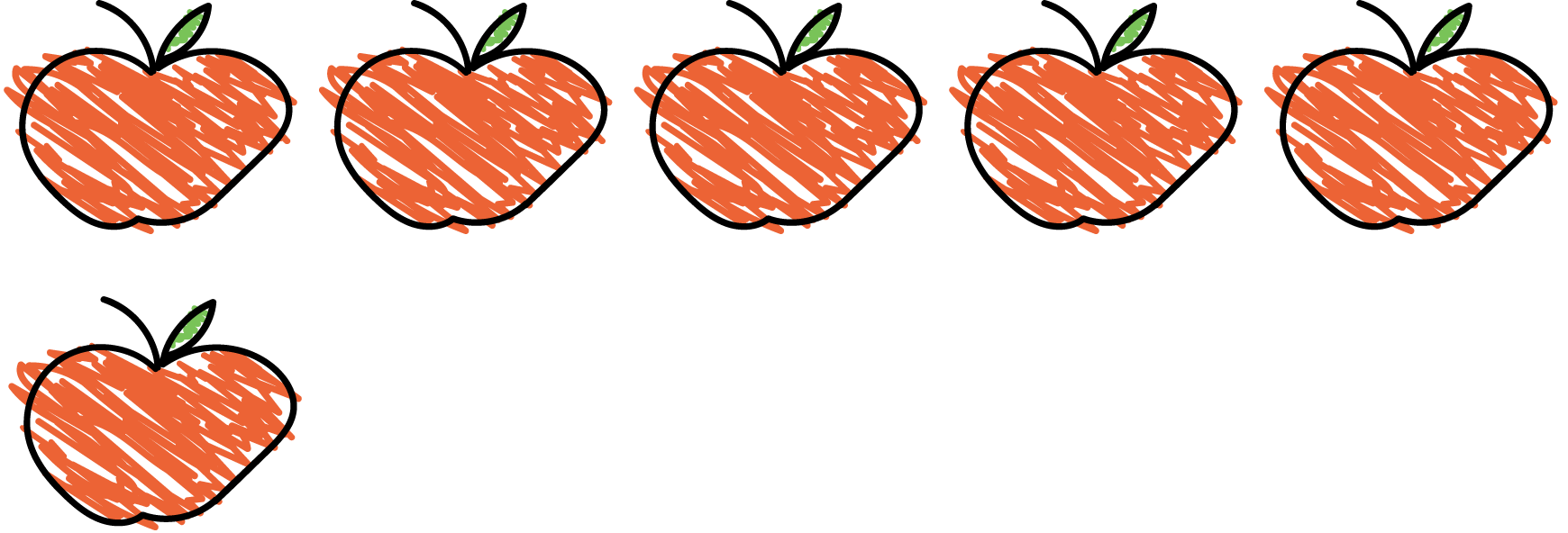
- “Diego drew these apples. Which number poster did he draw these apples for? How do you know?”
Activity 2: Introduce Math Libs, Draw 1–10 (10 minutes)
Narrative
The purpose of this activity is for students to learn stage 1 of the Math Libs center. Students draw groups of images to match given numbers.
Advances: Speaking
Supports accessibility for: Memory, Organization
Required Materials
Launch
- Groups of 2
- Give each group of students a number mat, a connecting cube, and two copies of a page from the blackline master.
- “We are going to learn a new center called Math Libs.”
- Demonstrate rolling a cube onto the mat.
- “Should I write 4 next to the butterflies, ladybugs, caterpillars, flowers, or rabbits?”
- “I wrote 4 next to the rabbits, so now I need to draw 4 rabbits in my picture. It’s okay if my rabbits don’t look exactly like the rabbits in the picture. Then I will roll for my partner and they will write the number and add drawings to their picture.”
- Demonstrating drawing 4 rabbits in the picture.
Activity
- “Take turns playing with your partner. Roll the cube and tell your partner the number. Then they choose where to write the number and draw that many things in their picture.”
- 6 minutes: partner work time
Student Response
For access, consult one of our IM Certified Partners.
Activity Synthesis
- Invite 3–4 students to share their pictures. Display the pictures for the class.
- “Why do all of the pictures have ladybugs in them?” (We all had to draw some ladybugs.)
- “Why don’t they all have the same number of ladybugs?” (The number was different each time you rolled.)
Activity 3: Centers: Choice Time (20 minutes)
Narrative
The purpose of this activity is for students to choose from activities that offer practice composing, decomposing, and comparing numbers.
Students choose from any stage of previously introduced centers.
- Math Libs
- Bingo
- Number Race
- Geoblocks
- Math Fingers
Required Materials
Materials to Gather
Required Preparation
- Gather materials from:
- Math Libs, Stage 1
- Bingo, Stages 1 and 2
- Number Race, Stage 1
- Geoblocks, Stages 1 and 2
- Math Fingers, Stages 1 and 2
Launch
- “Today we are going to choose from centers we have already learned.”
- Display the center choices in the student book.
- “Think about what you would like to do first.”
- 30 seconds: quiet think time
Activity
- Invite students to work at the center of their choice.
- 8 minutes: center work time
- “Choose what you would like to do next.”
- 8 minutes: center work time
Student Facing
Choose a center.
Math Libs
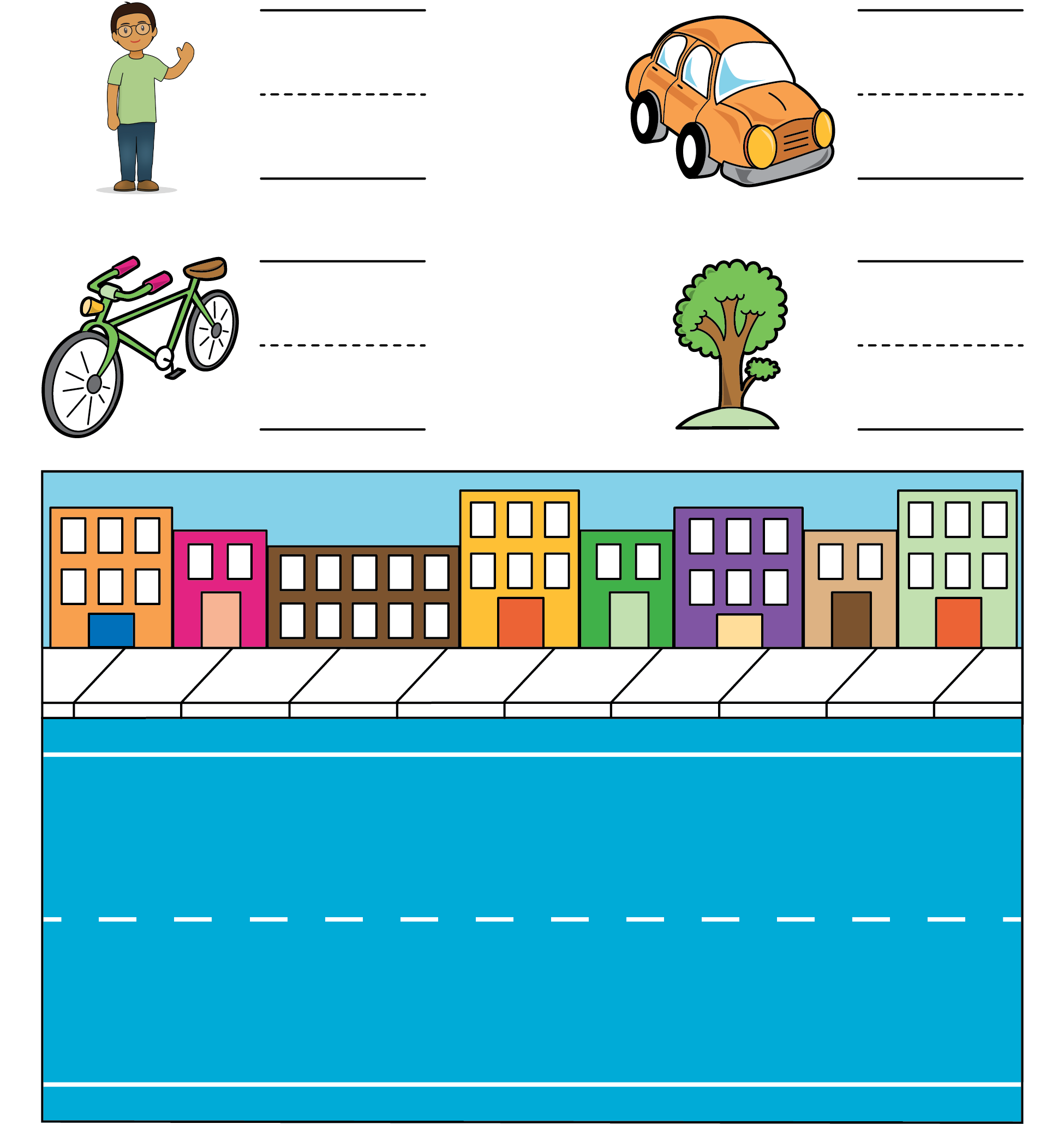
Bingo

Number Race
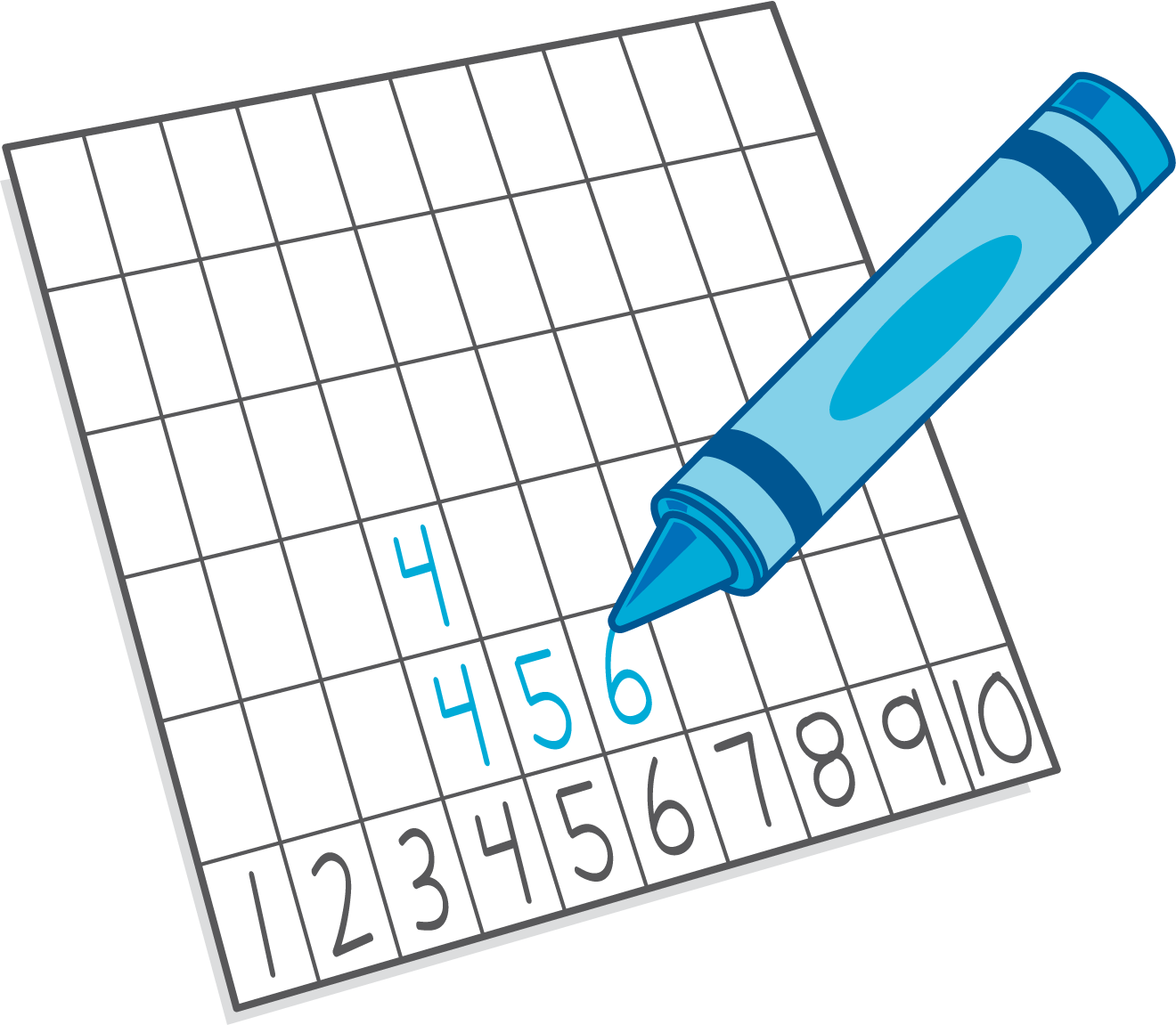
Geoblocks

Math Fingers
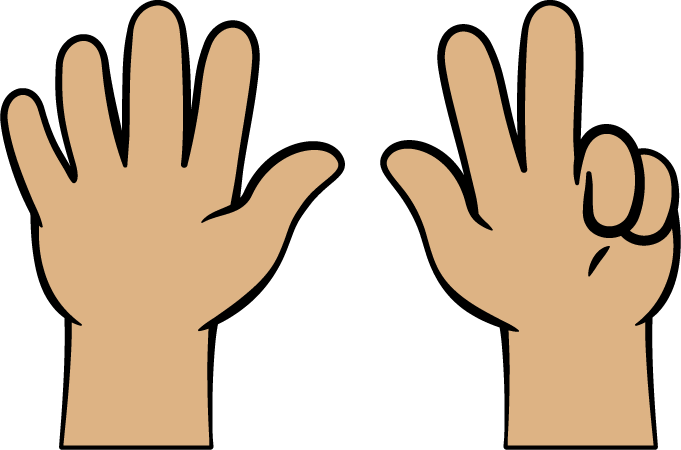
Activity Synthesis
- Invite students to display their completed Math Libs page.
- “How many _____ did they draw? How do you know?” (I counted them. They wrote the number _____ next to it.)
Lesson Synthesis
Lesson Synthesis
Display 2 student-created Math Libs pictures from the second activity, but hide the numbers written at the top. Record and display one set of numbers separately, so that students can determine which picture matches the numbers.
“Han wrote down these numbers for his picture. Which picture did Han draw?”
Cool-down: Unit 2, Section C Checkpoint (0 minutes)
Cool-Down
For access, consult one of our IM Certified Partners.